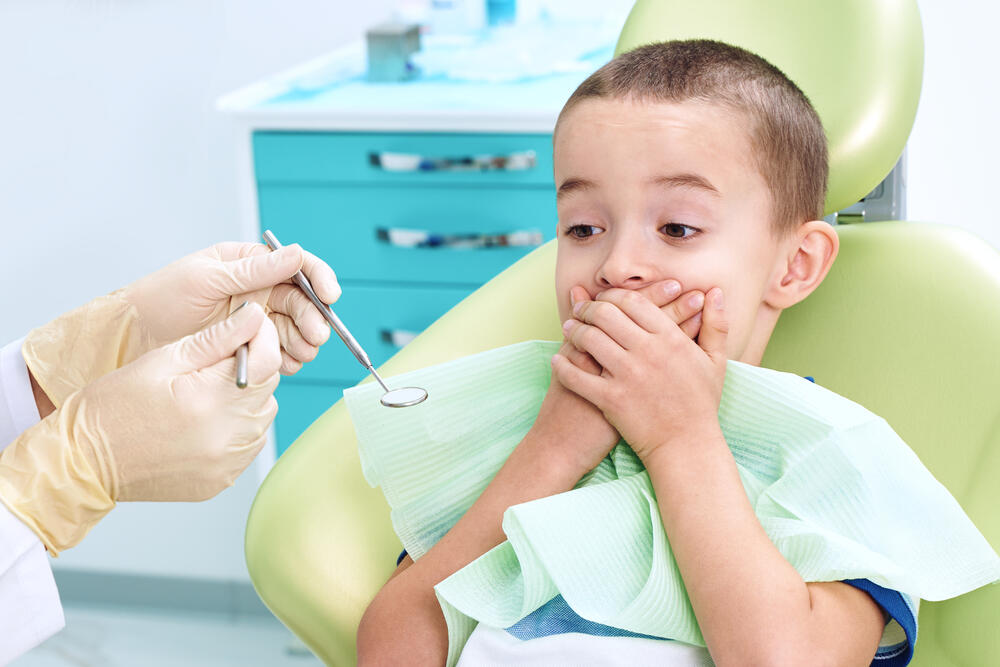Fear, worry, or tension linked with a dental environment is known as dental anxiety. Fear of going to the dentist might lead to postponing or avoiding dental treatment. Dental anxiety may be triggered by things like needles, drills, or the dental environment in general. Dental anxiety may be classed as a severe dental phobia, resulting in irrational dread and avoidance of the dentist. Pediatric Dentist Indianapolis IN confirmed that dental anxiety might be exacerbated by mental health illnesses such as post-traumatic stress disorder and anxiety disorder and a history of head and neck trauma.
Dental Fear or Anxiety Affects Your Oral Health
Avoiding the dentist may lead to the progression of dental disease, a higher need for emergency treatment, or more complicated treatment. It may also exacerbate the underlying issue of dental phobia. The ‘vicious cycle of dental worry’ is what it’s called.
Regular dental checkups, cleanings, and X-rays of the teeth may help prevent dental disease by allowing the dentist to detect any issues early on, allowing for less invasive treatments. Dentists examine for symptoms of mouth cancer during routine checkups, which is particularly crucial for individuals who smoke or use alcohol daily, and much more so for those who do both. If you find a mouth ulcer that persists for more than two weeks, see a dentist as soon as possible.
The majority of dental illness is avoidable and connected to one’s lifestyle. When you delay visiting the dentist, you’re not only increasing your chances of needing more difficult treatments when you do go, but you’re also losing out on learning how to properly care for your teeth.
According to Pediatric Dentistry Indianapolis IN, dental disease is caused by the same lifestyle factors that cause diabetes, obesity, heart disease, stroke, and several malignancies (regularly consuming sugary food and drinks, smoking, and drinking alcohol). Taking care of your dental and overall health, as well as remembering to brush twice a day and floss once a day, is critical.
Dental Anxiety Signs and Symptoms
People who suffer from a dental phobia may encounter the following symptoms, which Children Dental Center Indianapolis IN suggests:
- Sweating
- Tachycardia (rapid heartbeat) or palpitations
- A drop in blood pressure and the risk of fainting (syncope)
- Outward symptoms of anxiety, such as sobbing or panic
- Withholding emotions or masking them with humor or hostility.
- Some nervous persons often skip or avoid dental visits, and they may find it challenging to endure dental treatment, whether basic or sophisticated.
Dental Anxiety and Fear My Be Caused by A Variety of Factors
Dental phobia may be brought on by a variety of factors, including:
- A terrible dental or other medical encounters
- A history of head and neck trauma
- Other traumatic events, such as child abuse
- The mouth is a personal zone, and that entering it is a breach of privacy.
- Fear of losing control
- A lack of trust
- Anxiety is connected with other illnesses such as agoraphobia (fear of being trapped in settings from which you feel helpless), claustrophobia (fear of enclosed places), or obsessive-compulsive disorder (cleanliness preoccupation).
You’re not alone if your youngster yells, flees, faints, or threatens to run away anytime you mention a dentist visit. An extreme fear of the dentist may put you and your kid in a lot of distress. Avoiding dental checkups is not a good idea since frequent inspections and dental treatments are necessary for healthy teeth and gums. The following tips which Kids Dentist Indianapolis IN shares might help you relax during your dental appointments.
Infants And Toddlers Have a Fear of Going to The Dentist
By the time your child turns one, make sure they have seen the dentist. Maintain a calm and soothing manner, and only address dental matters in positive words since your youngster may readily pick up on your dental concerns. Bring a favorite toy or blanket with you to the dentist to make your appointment more relaxing.
Teenagers with Dental Phobia
Keep in mind that a teenager’s fear of the dentist is more likely to be hidden due to shame. Encourage your adolescent to ask questions and express any worries regarding dental anxiety or an impending dental visit. Understanding what will happen throughout therapy might help to alleviate stress. So that your adolescent knows what to anticipate, ask the dentist to describe treatments in detail. To assist your adolescents in coping with anxiety, you may introduce them to meditation, biofeedback, or guided relaxation programs.
How to Deal with Dental Anxiety
Locate a dentist that specializes in treating children with dental phobia. To make visits more fun, many pediatric dentists feature kid-friendly waiting rooms with vibrant décor and various toys, games, and other diversions. Be careful to praise and encourage your youngster for excellent conduct after a successful dental checkup.
Don’t Pass on Your Dental Phobia to Your Children
Please do not share your dental phobia with your children. Parents’ dental anxiety may be passed down to their children. According to the survey, the number of parents with dental phobia reflects the percentage of children afraid of dentists. It’s critical to control your negative emotions if you want to pass on your dread of dentists to your children. Meditation, guided relaxation, the use of headphones, and the presence of a trusted friend or family member are just a few of the anxiety-busting approaches that may help you get through your treatment.
Dental Phobia May Impact Everyone
Dental phobia is a prevalent ailment that may afflict individuals of all ages. In most situations, children who have had negative dental experiences may overcome their fears if the matter is handled correctly. They are carefully cared for and supported during subsequent dental appointments. Adults who are nervous about dental care are likely to be anxious for the rest of their lives. Many worried dental patients can locate a dentist who understands their condition and helps them deal with dental visits.



